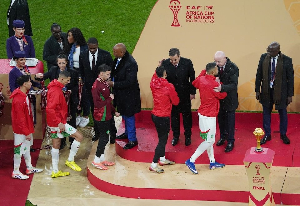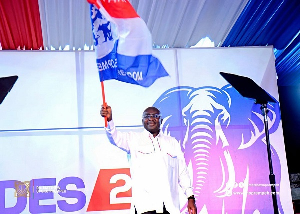…As Tigo counters technology upgrade and trendy services with ‘quality network’
To state that media hype has gradually replaced quality service in the Ghanaian telecommunications market place would be an understatement, as telecom service providers are battling day by day to outdo one another with catchy promos on all media fronts.
When the idea of 3G technology was first introduced to Ghana by GLO, which is yet to launch, it sounded too far-fetched. However, not long after that, Zain launched their operations in Ghana with a 3.5G, promising their prospective subscribers modern voice and data services including internet access, video calls and seamless roaming.
That was in December 2008, and come early 2009, MTN announced a test transmission of their 3.5G facility, which has since been successfully launched.
Within that same period, Vodafone announced their rebranding of the former OneTouch and the whole of Ghana Telecom into the red & white Vodafone colours and flooding the market with highly subsidised handsets, actually taking the battle to their competitors.
Check the colour competitions as well: Yellow is the catch word for MTN, while Blue goes with Milicom’s TiGo and light green for Kasapa. Don’t forget that Glo also uses green in their home base in Nigeria so one still wonders how they are going to do the colour trick here in Ghana as Kasapa already identifies with the green.
Now, here comes the red background of Vodafone and as to whether colours give any more competitive edge apart from identity can still not be fathomed. But for Zain who uses the combination of black, magenta and green, their colourful presence is gradually waning in the presence of Vodafone’s red.
Not wanting to be left out of the intense competition that has hit the telecommunications market in Ghana lately, the ‘grandfathers’ of mobile telecommunication in Ghana, having debuted in the country on analogue in 1995, Millicom Ghana Limited, operators of TiGo, have launched a new campaign dubbed “quality network” which they claim is to ensure clarity of mobile telecommunication for their customers.
This campaign, (an addition to several other already existing services) according to the company will give comfort and satisfaction to its subscribers when they are making or receiving calls as well as downloading data.
This launch came just a day after current market leaders; MTN launched their mobile TV which allows subscribers with the right handsets to access selected DSTV channels on their mobile phones.
MTN itself seemed to have taken a cue from Vodafone which it inherited from OneTouch, before upgrading onto a 3G facility.
Ms Patricia Obo-Nai, Chief Technical Officer of TiGo, who briefed the press on the campaign in Accra, said the company, instead of concentrating in Accra, had established operational maintenance centres across the major cities in the country to ensure that personnel were readily available to rectify any faults that might occur within the network.
Ms Obo-Nai said TiGo( still operating on GPRS) had constructed over 900 kilometres of fibre with the capacity to handle any level of traffic on the network to prevent jamming of calls.
Because of this, she intimated that the company has since January this year been scoring a 99.8 network availability, thus enabling them experience a below 1% congestion rate, whereas the industry in Ghana allows for a 2% congestion, while Millicom Internationally allows for 1.5% rate.
“Quality service takes effort to achieve whether one operates on 2G, 3G or 4G”, Ms Obo-Nai asserted adding that TiGo has been able to control drop calls to a level below 1.5% whereas the industry regulators allow for 2%.
She said the company had also put in place a complete microwave ring across the country to prevent dropping of calls, failure of calls to go through, and or break in communication when there is a problem with its masts.
Ms Obo-Nai said for a mobile operator to boast of offering quality service, its network must always be available, accessible and have quality of connection, conditions that Tigo basks in.
Corporate Communications Manager of TiGo, Anita Erskine conceded that competition is getting keener in the in the industry, but added that it is good for customers since they have the power of choice with the numerous networks around.
“We all watch over our shoulders to see what our competitors are doing and adopt strategies to counter”, she said of the industry, adding quickly that the competition does not have to become dirty though.
Ms Erskine said the aim of TiGo was to provide quality network to enhance communication activities of its customers.
What stakeholders are expecting from regulators of the market to do is to ensure that all these claims made by service providers are strictly delivered with minor hitches because it is disheartening to note that with all the hypes from these companies their service qualities are still nothing good to write home about.
Business News of Friday, 5 June 2009
Source: Financial Intelligence, (Justice Lee Adoboe)
Telecom market competition getting hotter
Entertainment











